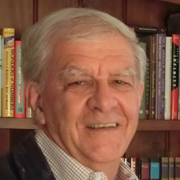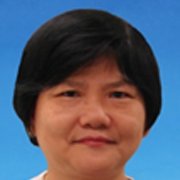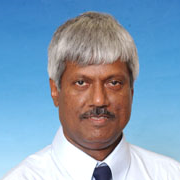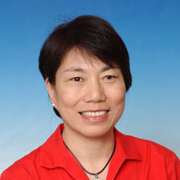S1: Purposeful goals, Challenging Tasks, Knowledge-building Activities: Mathematics by Inquiry

Dr Steve Thornton
Department of Mathematics, Executive Director Mathematics by Inquiry
Abstract: Designing mathematics instruction requires careful consideration of the mathematical goals, tasks that will enable students to achieve those goals, and ways of interacting and working together that establish a knowledge-building community. In this workshop we will examine a learning trajectory that we are developing for the Australian reSolve: Mathematics by Inquiry project for Grades 8 to 10 that we have called Algebra as Generalised Arithmetic. The learning trajectory seeks to encourage students to reason with algebra, including using visualisation and algebra to generalise and justify arithmetic results. We will look at examples from each of these year levels to show how we have articulated the mathematical purpose, accessible and challenging tasks and the knowledge-building culture of the classroom.
S2: Designing and Implementing Scientific Calculator Tasks and Activities

Prof Barry Kissane
Murdoch University
Abstract: Although officially approved for use in the Singapore secondary curriculum, including examinations, scientific calculators are still often misunderstood as devices solely for arithmetic computation and even at times regarded as unhelpful for students learning mathematics. Yet the development of calculators in recent decades has been focused on their use as educational devices, and the design of calculators has been heavily influenced by the needs of secondary school students. In this hands-on workshop, we will first consider the educational design of tasks and activities using technology for various educational purposes, including the development of mathematical concepts and important processes such as reasoning and modelling. Attention will then turn to the design of experiences that incorporate modern calculator capabilities and their affordances for important learning goals, as well as the implementation of these in classrooms. Calculator tasks and activities will be shared and critiqued; in support of this activity, participants are invited to bring at least one good example of the educational use of calculators to discuss with other participants. CASIO fx-96SG PLUS calculators will be made available for use by participants, but teachers are welcome to bring to the workshop the scientific calculator that their students generally use, should they prefer.
S3: Use of Comics in the Singapore Mathematics Classrooms: Some Learning Points from the Practitioners

Prof Toh Tin Lam
National Institute of Education Singapore
Abstract: We have trialed the use of comics in teaching mathematics at the lower secondary level. The researchers have designed a comics teaching package for selected topics in the mathematics curriculum and and have identified some good practices. This workshop presents our theoretical framework of comics in mathematics teaching and the good practices that actually occur in the mathematics classrooms.
S4: Developing Algebraic Habits of Mind to Enhance Pedagogical Practices and Improve Student Learning through Inquiry-based Problem Solving

Prof Padmanabhan Seshaiyer
George Mason University
Abstract: In this session, we will share how inquiry-based learning with multiple approaches can be employed to engage students in higher-level critical thinking strategies, open-ended exploration and multiple approaches in problem solving, including technology. Specifically, the participants will learn about best practices in teaching and learn to develop mathematically rich problem solving activities and tasks that can help students to develop their algebraic habits of mind. The participants will also have an opportunity to learn about effective performance based assessments as well as implementing lesson study designed to help teachers support their students learning progression and their mathematical understanding.
S5: Designing Rich Mathematics Activities for Conceptual and Relational Understanding

Ms Chua Kwee Gek
Abstract: In Mathematics instruction, the goal of every mathematics teacher is to help learners form a rich understanding of the topic through the incorporation of diverse learning experiences. What are the underlying principles in designing tasks/activities that will foster the various skills in the mathematical processes?
Participants will have the opportunities to work on tasks that offer a wealth of
cognitive, comprehension-oriented, communicative, modeling, pedagogical, and reasoning
demands.
Target Audience: Lower Secondary Teachers
S6: A Personal View on Teaching Probability
Activities for Higher Order Thinking (HOT) in Secondary Mathematics

Dr Wong Khoon Yoong
Abstract: Mathematics learning should include classroom activities that will promote higher order mathematical thinking (HOT) among students so that they are equipped to apply HOT for future learning and decision-making in the 21st century. This is specified under the Process component of the Singapore Mathematics Framework. This workshop will help teachers to apply several criteria and strategies to design HOT activities for secondary mathematics lessons. At the end of this workshop, teachers will be able to
- design HOT mathematics activities for selected secondary mathematics topics, and
- explore how to incorporate these activities into their lessons to promote higher order mathematics thinking.
S7: Use of typical problems in the teaching of mathematics at the secondary level

Prof Dindyal Jaguthsing
National Institute of Education Singapore
Abstract: The use of typical problems from textbooks, tests, and examinations in mathematics is quite pervasive. Very often such problems are used in a procedural manner to develop skills. What affordances do typical problems provide to the teachers for enhancing their teaching? In this workshop meant for secondary school teachers, participants will have the opportunity to examine closely how such typical problems, from different content domains in mathematics, can be used more productively for developing the conceptual knowledge of students.
S8: Engaging the Hearts of Secondary School Mathematics Students

Dr Yeo Boon Wooi, Joseph
National Institute of Education Singapore
Abstract: In this workshop, teachers will learn how to engage the hearts of their students by using resources that not only make lessons interesting but also help them to appreciate the beauty and relevance of mathematics in real life. Examples of such resources include catchy maths songs, amusing maths videos, witty comics, intriguing maths puzzles and games, fascinating magic tricks, inspiring stories of famous mathematicians, the celebration of important maths days and years, and interesting real-life examples and applications of mathematics. The key principles to engage the students are summarised in the acronym LOVE Mathematics (Linking Opportunities in a Variety of Experiences to the learning of Mathematics): (a) the main objective is still not to make students laugh but to link the experiences to the learning of mathematics, (b) use a variety of experiences to interest different students because not every student will find the same thing intriguing, and (c) provide ample opportunities to engage the students, e.g. in at least one part of most lessons.
S9: Graphicacy – A Skill to be Valued

Prof Ng Swee Fong
National Institute of Education Singapore
Abstract: Most secondary students are weak in the ability to interpret global graphical features so as to extract information about many everyday and scientific situations. In Singapore the primary mathematics curriculum introduces bar graphs and line graphs and the discussion is often focused on point readings and comparison. Secondary school mathematics curricula develop the graphs of relations such as \(y\; = \;mx\; + \;\)c and of the ‘slide-rule’ graph \(\; y = \;{a^x}\) . Graphs of the form \(A = 3{r^2}\), and \(y = {x^2}\) \( + \;2x\) are graphed to solve equations, not to study the form of the function. In the statistics chapters, more real life data are used, but still the graphs are used to display information, and not for the elaboration of the properties of the underlying situation. Global features such as the general shape of the graph, intervals of rise and fall or maximum increase are rarely given much attention. Very little attention is paid to global graph-reading and interpretation.
Participants to this workshop will engage in activities where they interpret, and then discuss the challenges they themselves face as they attempt to discuss the global features of graphs representing real data. Discussion would focus on how these challenges relate to research and how would they, as teachers, help students to develop such graphicacy skills.